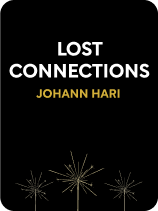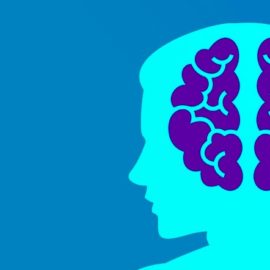

This article is an excerpt from the Shortform book guide to "Lost Connections" by Johann Hari. Shortform has the world's best summaries and analyses of books you should be reading.
Like this article? Sign up for a free trial here .
What is the major reason why Johann Hari claims antidepressants don’t work? If antidepressants are not the solution to depression, why are they still popular?
According to Johann Hari, author of Lost Connections, the main reason why antidepressants don’t work is that the chemical imbalance that those drugs are designed to treat is rarely ever the true cause of depression. Multiple studies have debunked the imbalance theory, and yet, antidepressants are still used. Hari says this is because big pharma controls much of the drug trial and approval process that authorizes the use of antidepressants.
Read on to learn more about the reasons why antidepressants don’t work, according to Johann Hari.
Why Antidepressants Don’t Always Work
Now that we’ve explored the history of the medical and biopsychosocial models, let’s examine the arguments against antidepressants: the gold standard of treatment in the medical model.
Before you dive into the data explaining why antidepressants don’t work, remember that Hari’s goal is not to talk anyone into or out of taking antidepressants—it’s to make us question the way we think about depression and the societal conditions that contribute to it. Chemical antidepressants do work for a small minority of people, and Hari stresses that the information in Lost Connections is not medical advice. Going off these medications can cause severe physical withdrawal symptoms, so if you do decide to stop taking antidepressants, talk to your doctor first. They can help you create a plan to reduce your dosage gradually and minimize withdrawal symptoms.
In this section, we’ll discuss the lack of evidence for the “chemical imbalance” that forms the foundation of the medical model of depression and see how psychiatry itself undermined that idea with the former “grief exception” in the DSM. Then, we’ll discuss why pharmaceutical antidepressants continue to be so popular (and can still be legally sold at all) despite the evidence that most people feel relief from a placebo effect, not the drug itself.
Treating an “Imbalance” That May Not Exist
By the 1970s, new pharmaceutical technology allowed scientists to test the idea that serotonin was the specific cause of euphoria in patients given the failed tuberculosis drug. They tested this theory using a drug designed to lower serotonin levels in the brain. If healthy serotonin levels are the true key to happiness, then lowering the level of serotonin in someone’s brain should cause them to become depressed. However, in the study, this didn’t happen. For the vast majority of people in the experiment, the serotonin-lowering drug didn’t alter their mood at all. Further studies showed that decreasing serotonin has the same, tiny effect on the brain as increasing serotonin. Scientists moved on to do similar tests on other neurotransmitters (like norepinephrine and dopamine), only to get the exact same results.
The chemical imbalance theory as a whole started to fall apart. If depression is truly caused by an imbalance in the brain, then either resolving or increasing that imbalance should have created different results; either decreasing or increasing depression levels. However, it didn’t, providing solid evidence showing why antidepressants don’t work . In spite of this, most modern antidepressants are still designed to address imbalances by raising serotonin.
The Grief Exception
Another piece of evidence that explains why antidepressants don’t work is the grief exception model. The medical model prohibited psychiatrists from giving someone an official diagnosis of depression if they were grieving the loss of a loved one. The exception (sometimes called the “bereavement exclusion”) was a caveat to the official diagnostic criteria for depression, which are laid out in the official manual for diagnosing mental health conditions known as the Diagnostic and Statistical Manual (DSM).
The grief exception existed because grief and depression have nearly identical symptoms, to the point that people who are grieving a recent loss usually meet the official diagnostic criteria for depression in the DSM. Without context about a person’s life or recent losses, even a skilled psychiatrist might not be able to tell grief and depression apart based on symptoms alone. The exception gave psychiatrists a way to officially recognize that grief is a normal response to loss, not a biological illness, and that the symptoms of grief are situational—even when they’re indistinguishable from the symptoms of depression. In other words, the official medical rulebook of the psychiatric profession acknowledged that external life events—not just biology—can cause all the symptoms of clinical depression.
There was a time limit on this “normal” grief—in the original version, you could grieve for one year without being considered depressed, but after that you were subject to a diagnosis that there was something medically “wrong” with you. Later editions slashed that time limit down gradually until 2013, when the newly-released DSM 5 eliminated the grief exception entirely.
Psychiatrists decided to remove the grief exception because its existence raised uncomfortable questions about the biological model of depression. By including the exception, psychiatrists were admitting that something that looks a lot like depression, having exactly the same symptoms as it, could be caused by a person’s life circumstances—not just by their brain chemistry.
This opened up discussions about the causes of depression as a whole. If, in the case of grief, we can acknowledge that a person’s situation, not their biology, triggers depression symptoms, couldn’t this be the case for all depressed people who’ve experienced a terrible event? Consider depressed people who’ve gone through traumatic breakups or financial struggles: Could their depression symptoms have been triggered by their awful circumstances, too, rather than their brain chemistry?
Removing the grief exception allowed psychiatrists to simply ignore these questions and continue to promote the biological model of depression. The elimination of the exception means that if someone loses their spouse or sibling or child on Tuesday, they can be diagnosed with (and prescribed medication for) a mental health disorder on Wednesday. The only remaining evidence of the grief exception is a footnote encouraging providers to use “clinical judgment” based on an individual’s circumstances.
Antidepressant Effects Don’t Last
The final reason why antidepressants don’t work is that even when they create an initial boost in mood, those effects don’t last more than a few months (and may be due to the placebo effects of trying a promising new medicine). Researchers have studied this in many ways, always with similar results.
For example, the Star-D Trial in the 1990s tracked people who visited their doctor and were prescribed an antidepressant. Within the first few months, a promising 67% of patients felt relief from their depression symptoms. But after a year on the drugs, half the people who felt initial relief were depressed again, while only 33% of patients made a full recovery while taking antidepressants. However, without a control group, it’s impossible to say how many of those patients would have recovered on their own—so the real number who found lasting relief from antidepressants is likely even lower.
Pharmaceutical Companies Control the Research
One final argument against chemical antidepressants is that they may not be as effective as pharmaceutical companies claim they are. The reason for this is that in the United States, pharmaceutical companies control every step of the drug research and development process.
In order to get a drug on the market in the United States, pharmaceutical companies have to produce two separate trials that show some positive effects—no matter how small. These trials are run by the companies themselves (or by scientists whose research they fund), not by independent researchers, which means the people conducting the research have a vested interest in the drugs appearing to work (even when that’s not exactly true).
Furthermore, companies can run as many trials as they like in order to get those two positive results. So if a company runs 500 trials of a drug and finds no positive effects in 498 of those tests, that drug can still go into production based on the two trials where it showed even a tiny positive result.
On top of this, drug companies aren’t required to publish the results from those failed trials. This creates a serious publication bias. When independent researchers want to look at the data about a drug for themselves, they only see a fraction of the real picture—just the times the drug was successful, not the times that it wasn’t. Even the most objective evaluator is going to come to the conclusion that these drugs work if that’s the only data available to her. Eventually, the results of drug trials are evaluated by a group of regulators, who decide whether the drug is safe enough to be released. This should mean that independent eyes—who have no vested interest in the outcome—objectively evaluate the data and decide whether the drug is safe and effective enough to release. The catch? In the United States, drug companies pay 40% of the regulators’ salaries; in the United Kingdom, they pay 100%. In other words, every single link in the drug production chain is controlled by someone who stands to make a profit if the drug is released. Even if a drug only works for a small percentage of people, there is always incentive to push that drug through anyway because it will bring in more profit.

———End of Preview———
Like what you just read? Read the rest of the world's best book summary and analysis of Johann Hari's "Lost Connections" at Shortform .
Here's what you'll find in our full Lost Connections summary :
- The psychological and social factors that contribute to mental illness
- The history of antidepressants and the science behind them
- Why Amish people hardly ever get depressed






